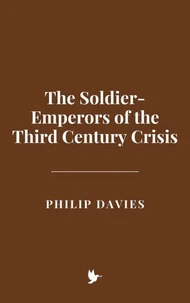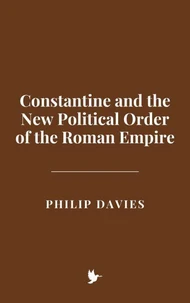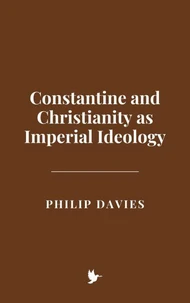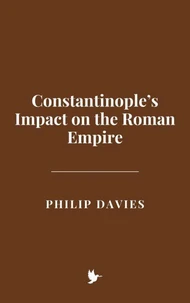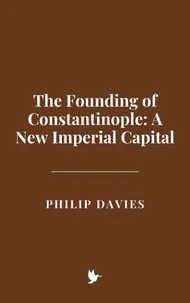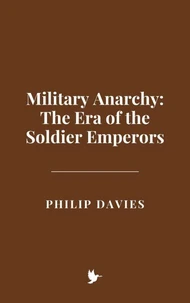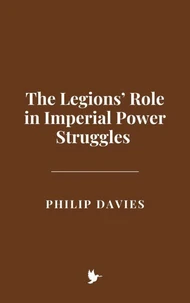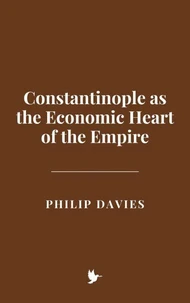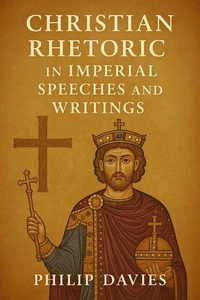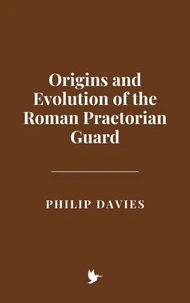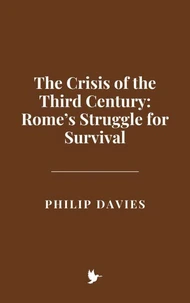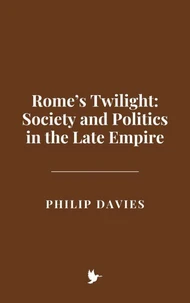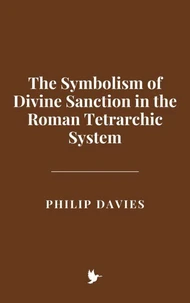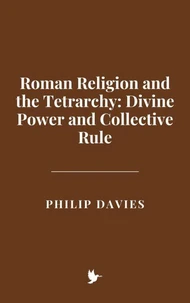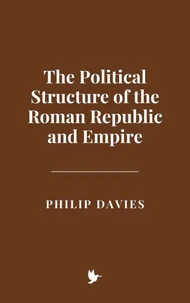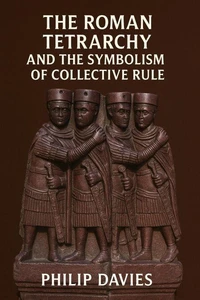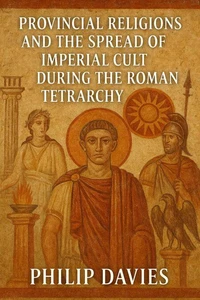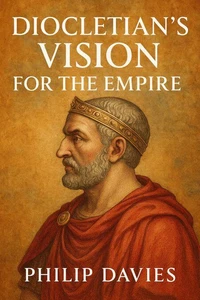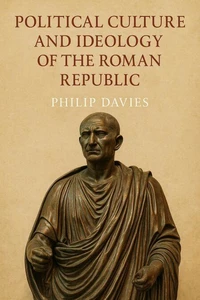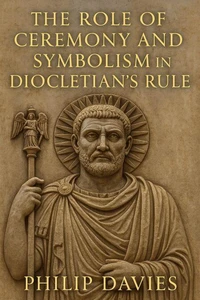The Tetrarchy and Diocletian’s Great Persecution
Par :Formats :
Disponible dans votre compte client Decitre ou Furet du Nord dès validation de votre commande. Le format ePub est :
- Compatible avec une lecture sur My Vivlio (smartphone, tablette, ordinateur)
- Compatible avec une lecture sur liseuses Vivlio
- Pour les liseuses autres que Vivlio, vous devez utiliser le logiciel Adobe Digital Edition. Non compatible avec la lecture sur les liseuses Kindle, Remarkable et Sony
 , qui est-ce ?
, qui est-ce ?Notre partenaire de plateforme de lecture numérique où vous retrouverez l'ensemble de vos ebooks gratuitement
Pour en savoir plus sur nos ebooks, consultez notre aide en ligne ici
- FormatePub
- ISBN8231103775
- EAN9798231103775
- Date de parution23/05/2025
- Protection num.pas de protection
- Infos supplémentairesepub
- ÉditeurWalzone Press
Résumé
Set against the backdrop of one of the most tumultuous periods in Roman history, The Tetrarchy and Diocletian's Great Persecution offers an authoritative and deeply researched account of the empire's radical political restructuring and its devastating campaign against early Christians. Philip Davies explores how Diocletian's creation of the Tetrarchy-a novel system dividing imperial power among four rulers-sought to restore order to a fractured empire, while simultaneously enforcing religious uniformity through the harshest persecution Christianity had yet endured.
Drawing on a wealth of primary sources and modern scholarship, the book reveals the complex motivations behind the persecution, the key roles played by figures like Galerius, and the paradoxical effect of repression in strengthening Christian identity and cohesion. Davies traces the gradual decline of persecution, culminating in Constantine's groundbreaking Edict of Milan and the transformation of Christianity from a persecuted sect to an imperial religion.
Through incisive analysis, the book illuminates the enduring legacy of Diocletian's reforms and persecutions in shaping the political theology of late antiquity, the rise of Christian imperial power, and the profound shifts that marked the twilight of the Roman pagan world. Essential reading for scholars and general readers alike, this volume sheds new light on a pivotal era that forged the foundations of the medieval Christian empire.
Drawing on a wealth of primary sources and modern scholarship, the book reveals the complex motivations behind the persecution, the key roles played by figures like Galerius, and the paradoxical effect of repression in strengthening Christian identity and cohesion. Davies traces the gradual decline of persecution, culminating in Constantine's groundbreaking Edict of Milan and the transformation of Christianity from a persecuted sect to an imperial religion.
Through incisive analysis, the book illuminates the enduring legacy of Diocletian's reforms and persecutions in shaping the political theology of late antiquity, the rise of Christian imperial power, and the profound shifts that marked the twilight of the Roman pagan world. Essential reading for scholars and general readers alike, this volume sheds new light on a pivotal era that forged the foundations of the medieval Christian empire.
Set against the backdrop of one of the most tumultuous periods in Roman history, The Tetrarchy and Diocletian's Great Persecution offers an authoritative and deeply researched account of the empire's radical political restructuring and its devastating campaign against early Christians. Philip Davies explores how Diocletian's creation of the Tetrarchy-a novel system dividing imperial power among four rulers-sought to restore order to a fractured empire, while simultaneously enforcing religious uniformity through the harshest persecution Christianity had yet endured.
Drawing on a wealth of primary sources and modern scholarship, the book reveals the complex motivations behind the persecution, the key roles played by figures like Galerius, and the paradoxical effect of repression in strengthening Christian identity and cohesion. Davies traces the gradual decline of persecution, culminating in Constantine's groundbreaking Edict of Milan and the transformation of Christianity from a persecuted sect to an imperial religion.
Through incisive analysis, the book illuminates the enduring legacy of Diocletian's reforms and persecutions in shaping the political theology of late antiquity, the rise of Christian imperial power, and the profound shifts that marked the twilight of the Roman pagan world. Essential reading for scholars and general readers alike, this volume sheds new light on a pivotal era that forged the foundations of the medieval Christian empire.
Drawing on a wealth of primary sources and modern scholarship, the book reveals the complex motivations behind the persecution, the key roles played by figures like Galerius, and the paradoxical effect of repression in strengthening Christian identity and cohesion. Davies traces the gradual decline of persecution, culminating in Constantine's groundbreaking Edict of Milan and the transformation of Christianity from a persecuted sect to an imperial religion.
Through incisive analysis, the book illuminates the enduring legacy of Diocletian's reforms and persecutions in shaping the political theology of late antiquity, the rise of Christian imperial power, and the profound shifts that marked the twilight of the Roman pagan world. Essential reading for scholars and general readers alike, this volume sheds new light on a pivotal era that forged the foundations of the medieval Christian empire.




